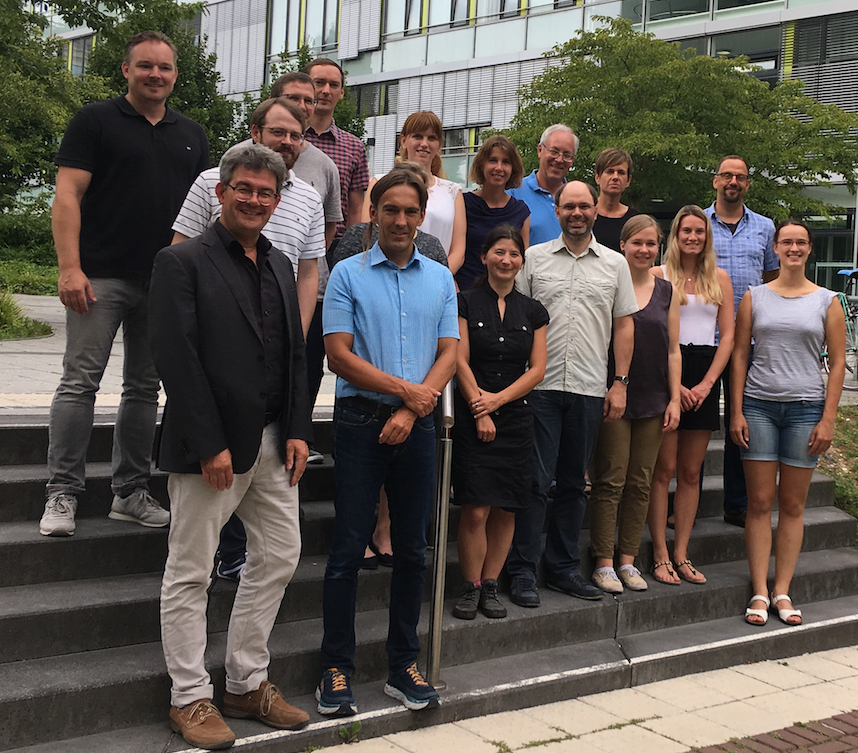As plastics production continues to grow globally, topics such as “microplastics” and “plastics in the environment” are becoming increasingly relevant and are part of social and political debates. Usually the focus of the discussions is on plastic pollution of aquatic ecosystems, whereas the pollution of soil ecosystems (including drainage water) is often neglected. This raises the question of whether plastic pollution of soils and fields can have similar effects as in limnetic and marine ecosystems.
In this context, the plastic films used extensively in agriculture must also be regarded critically. They are used on fields to increase the average soil temperature, support plant growth and reduce the use of pesticides. The same is true for garden applications. Even though the foils are usually removed after harvesting, individual fragments remain in the fields. So far, it is still unclear how much plastic is absorbed by the soil and what consequences these plastics have on organisms and the soil ecosystem.
 The iMulch project
The iMulch project
Within the framework of the three-year research project “iMulch”, funded by the European Fund for Regional Development and the State of NRW, this question will be addressed. The project is scheduled to run from January 2019 to June 2022. In coordination with the Institute for Energy and Environmental Technology e.V. (IUTA), the consortium is developing methods that will enable the detection of plastics (micro- and macroplastics) in soils and drainage waters. Therefore, scientists simulate the artificial ageing of field foils on the soil surface under the influence of UV-light and at a constant temperature. During this artificial aging process, they take samples at different soil depths in order to determine the proportion of plastic particles derived from the film. Soil samples are also taken from fields where it is known that mulch foils were used more frequently in order to determine the proportions of mulch foils in the real soil.
The tests include both petroleum-based and biodegradable plastic foils. Moreover, drainage water is sampled and analysed in the field and the behaviour of plastic foils is investigated in an experimental wastewater treatment plant. Samples are analysed for weathering, diffusion, ecotoxicity, enrichment and displacement. In addition, a life cycle assessment will be carried out to measure the environmental compatibility of conventional and biodegradable foils. In addition, another approach deals with the so-called “upcycling” of mulch films by bacteria. During this process, in the laboratory, plastic fragments are degraded by microorganisms and converted into new plastic molecules. Such molecules will then be returned to the value chain and can thus increase the recyclable portion of the films. Finally, avoidance and substitution strategies are derived from the results with the aim of reducing plastic foil fragments in the environment.
These investigations are to show whether and to what extent biodegradable foils offer an ecological advantage and whether the composition of plastic foils for agriculture and horticulture can be further improved. Furthermore, the novel analytical method can be used to test and evaluate plastics of any kind and provides information on the resulting impact on soil. As a result, the research of a terrestrial system complements the investigations of aquatic systems and provides the possibility of a holistic view of plastic emissions.
Project partners:
- Institut für Energie- und Umwelttechnik e.V. (IUTA), Duisburg (Koordination);
- FISCHER GmbH, Meerbusch;
- Fraunhofer-Institut für Umwelt-, Sicherheits- und Energietechnik UMSICHT, Oberhausen
- Fraunhofer-Institut für Molekularbiologie und Angewandte Ökologie (IME), Schmallenberg;
- RWTH Aachen, Institut für Umweltforschung (IUF);
- RWTH Aachen, Institut für Angewandte Mikrobiologie (iAMB).
Associated project partners:
- Umweltbundesamt (UBA);
- BASF SE Ludwigshafen;
- FKuR (Forschungsinstitut Kunststoff und Recycling), Willich;
- BioBag Germany, Schallstadt.


German version available at https://renewable-carbon.eu/news/?p=67190
Source
nova-Institute, press release, 2019-10-08.
Supplier
BASF SE
by Dr. Björn Fischer - FISCHER GmbH
Europäischer Fonds für Regionale Entwicklung (EFRE)
European Union
FKuR Kunststoff GmbH
Fraunhofer-Institut für Molekularbiologie und Angewandte Ökologie (IME)
Fraunhofer-Institut für Umwelt-, Sicherheits- und Energietechnik (UMSICHT)
Institut für Energie- und Umwelttechnik e.V. (IUTA)
Landesregierung Nordrhein-Westfalen
Rheinisch-Westfälische Technische Hochschule Aachen (RWTH)
Umweltbundesamt
Share
Renewable Carbon News – Daily Newsletter
Subscribe to our daily email newsletter – the world's leading newsletter on renewable materials and chemicals









